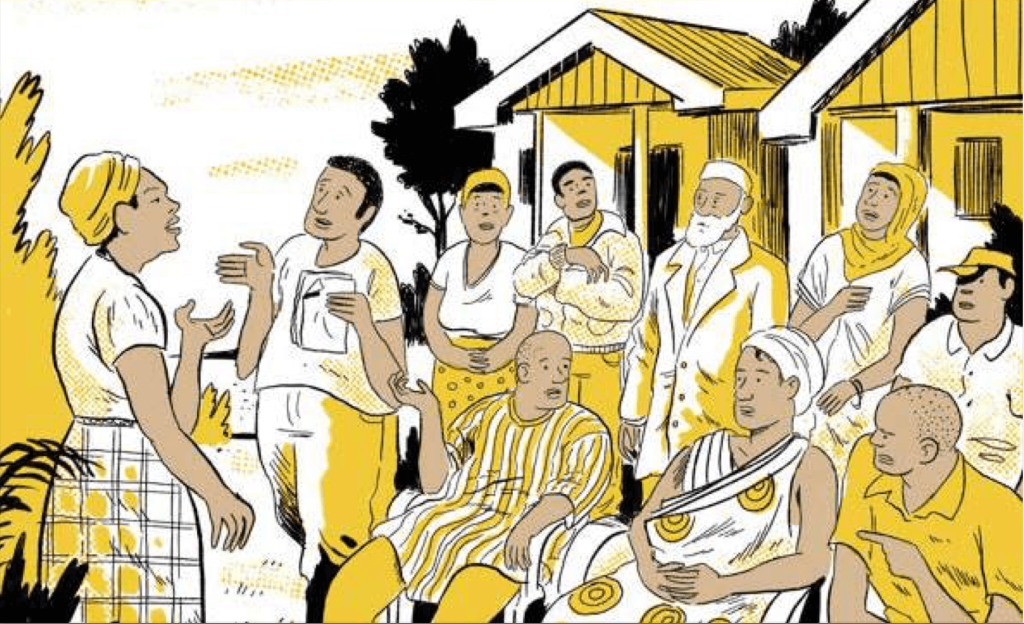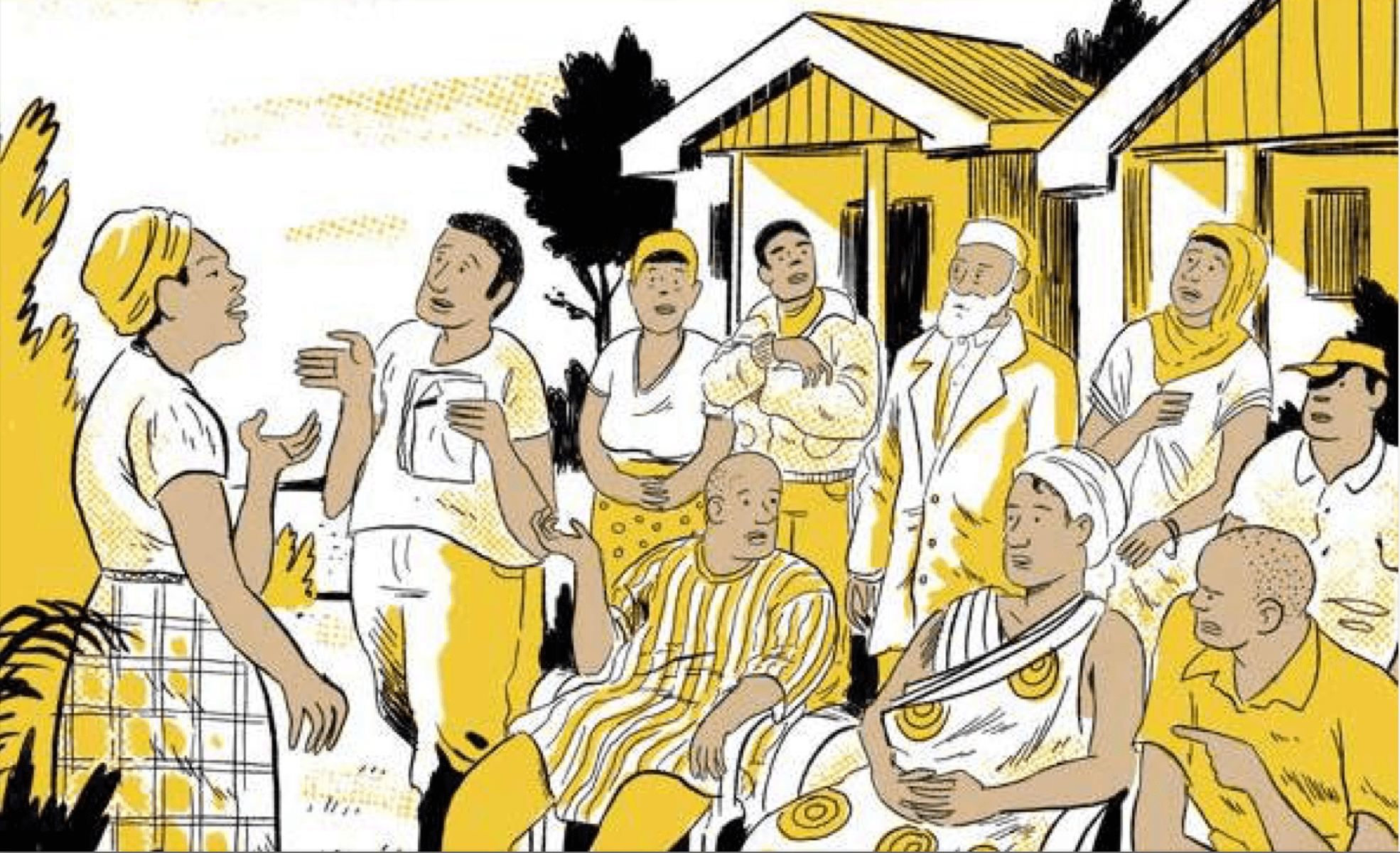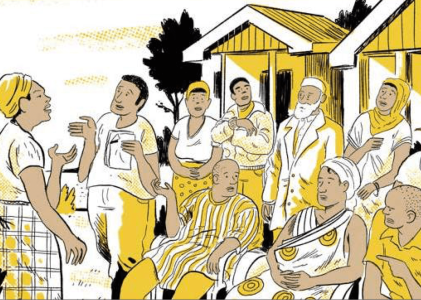This article has been extracted from a toolkit for advocacy organizations to assess their legitimacy within communities by Maaike Matelski, Assistant Professor at The Vrije Universiteit in Amsterdam. The toolkit was first published on the Partos website.
As communities consist of a plurality of actors with different interests, no organization can be expected to represent all community members. Advocacy CSOs often emphasize that communities need to speak with one voice and present a common agenda. However, tensions may arise in cases of competing advocacy priorities, for example where the organization pursues a feminist agenda that goes against traditional power relations, or where significant financial interests are at stake.
In the context of extractive projects, young men are particularly likely to diverge from advocacy goals as they tend to prioritize economic opportunities. Local elites, such as businessmen or politicians who often reside outside the affected area, may try to influence community priorities in their favour. A long-term presence on the ground helps organizations assess and understand these various interests and the voices that emerge claiming to represent local community interests. However, involvement in long-term struggles can also result in a form of community fatigue whereby individual community members are inclined to give up their struggle.
A common definition of legitimacy in the context of CSOs is ‘a sense that an organization is lawful, proper, admissible and justified in doing what it does, and saying what it says, and that it continues to enjoy the support of an identifiable constituency’.
In this context, community-based legitimacy is a vital precondition for advocacy CSOs, as it ensures a ‘license to operate’ in project areas that are far removed from most organizational headquarters. A common definition of legitimacy in the context of CSOs is ‘a sense that an organization is lawful, proper, admissible and justified in doing what it does, and saying what it says, and that it continues to enjoy the support of an identifiable constituency’. Being viewed as legitimate offers organizations opportunities for taking certain political or social action, making credible statements, or influencing public policy.
Research conducted in various rural areas of Kenya, however, indicates that CSO legitimacy is relational and context- dependent. While characteristics such as having relevant expertise and being transparent were valued by all types of actors, other aspects were less universally appreciated. Community members particularly valued long-term presence and engagement in the field, responsiveness to urgent needs or requests (preferably by phone), and the ability to demonstrate concrete output in the form of visible results on the ground. These community expectations sometimes clashed with the advocacy focus on long- term goals, as well as the fact that human rights advocacy may merely result in the prevention of worse outcomes. Other sources of legitimacy, such as having a cooperative attitude and a moderate tone of voice, were valued by state and business actors but not necessarily by community members, who expected CSOs to side with their cause.

For donors, online visibility of campaigns was viewed as a source of legitimacy. In one example, a demonstration against coal mining organized in Nairobi was considered particularly successful by donors and (trans)national advocacy groups, because it had been highly visible while costing ‘less than $5000’, and had reached newspapers as far as the United States. Community members, however, complained that there had been insufficient funding to bring more than a few of them to the capital, Nairobi, and that the organizers had not come back to report on the outcomes of the demonstration and the demands that had been made towards the national government. The organization’s tendency to communicate mostly through online channels was considered unsuitable for passing information to community members, many of whom had limited access to internet.
Representatives of local advocacy CSOs indicated that they would like to have a large role in decisions on funding allocation and agenda setting, as this would enlarge their impact for, and legitimacy towards, local communities. Regular shifts in donor priorities and lack of budgetary influence complicate their work on the ground, as it disrupts continuity and trust building on the local level. Research indicates that demonstrable legitimacy with local communities is a prerequisite for CSOs to successfully take on such roles in decision making processes.
Measures taken in response to the COVID-19 pandemic have had a negative impact on relationships between advocacy organizations and local communities. Meetings and other forms of communication moved almost completely online, limiting access for many community members and complicating trust building with CSOs. Moreover, forms of service delivery that were paired with advocacy activities, such as assistance for agricultural or educational needs, have been strongly reduced since the pandemic and the economic crisis that followed. This has left many communities in a state of heightened poverty and more likely to prioritize short-term economic survival over long-term advocacy goals.
For more information on this project, see the toolkit here.

